Overview
Service Pack One updates Version 20 of the STEP Tools® software to include many improvements to our IFC meshing and viewing, the latest STEP-NC AP238 definitions for testing the fourth edition currently in development, and improvements to the material removal algorithms used for IFC booleans and STEP-NC simulation.STEP Improvements
We have expanded the STEP EXPRESS class library with the new AIM subtypes listed below. These definitions support testing STEP-NC AP238 with powder-bed fusion, drill and fill, and composite tape laydown manufacturing. These new capabilities are part of the fourth edition currently under development.
- additive_type_strategy
- additive_type_technology
- external_type_operation
- filling_type_group
- filling_type_operation
- machining_group
- machining_stack
- machining_stack_element
- twin_feature
- twin_measured_property
- twin_prototype_relationship
In addition to these new entities, we added new AND/OR combinations to support semantic PMI where annotation occurrences have overriding styles or PMI properties.
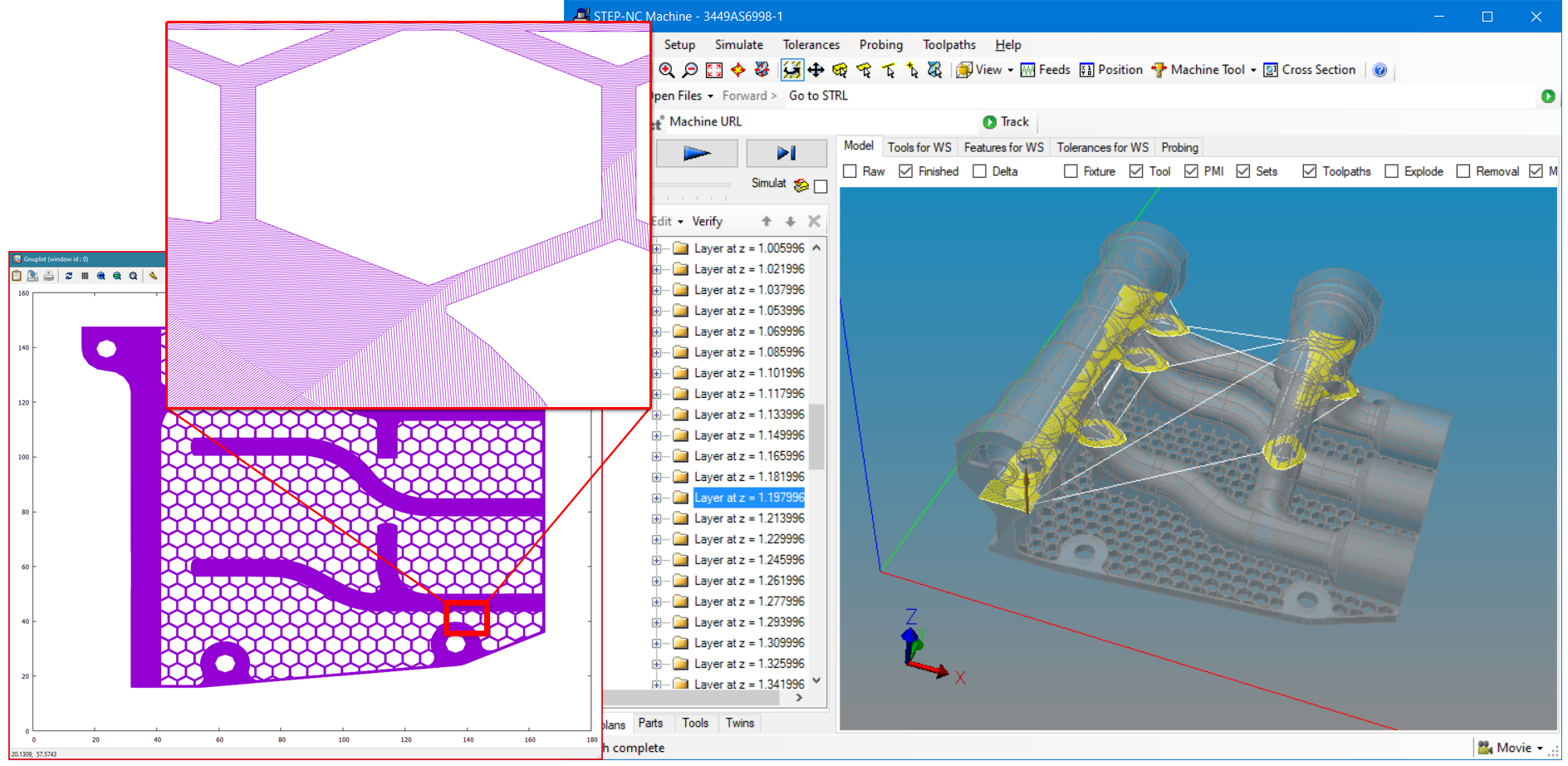
The STEP assembly functions now understand composite assembly tables as laminate "assemblies".
The STEP mesher now understands triangulated_face instances and spline curves trimmed by points rather than param values. The matrix functions also understand 2D axis placements and 2D cartesian transformation operators.
We significantly expanded the handling of units in the STEP helper library. It can now create/recognize STEP units for mass, mass and area density, and other SI quantities. The new units are listed below:
- mass: mg, gram, kg, tonne (metric ton), oz, pound, ton, and long ton, kilonewton.
- mass density: kg per cubic meter, gram per cubic centimeter, ounce and pound per cubic inch, and pound per cubic foot.
- area density: same as above but square instead of cubic length.
- other SI quantities with their base unit: ampere/current, becquerel/radioactivity, candela/luminous intensity, coulomb/charge farad/capacitance gray/absorbed dose, henry/inductance, joule/energy, lumen/luminous flux, lux/illuminance, mole/amount of substance, ohm/resistance, siemens/conductance, sievert/equivalent dose, tesla/magnetic flux density, volt/voltage, weber/mag flux.
IFC Improvements
We updated the IFC EXPRESS class library schema to IFC 4x3 ADD2, published as ISO 16739-1:2024, and significantly expanded the IFC mesher with extensive testing against almost 400 proprietary customer files. It now handles revolved-area solids, swept disk solids, and curve-bounded planes, swept solids profiles with voids, surface-curve swept area solids, composite profiles, and trimmed ellipses in composite curves, as well as indexed poly curves. Boolean operators can now use polygonal-bounded half-spaces.
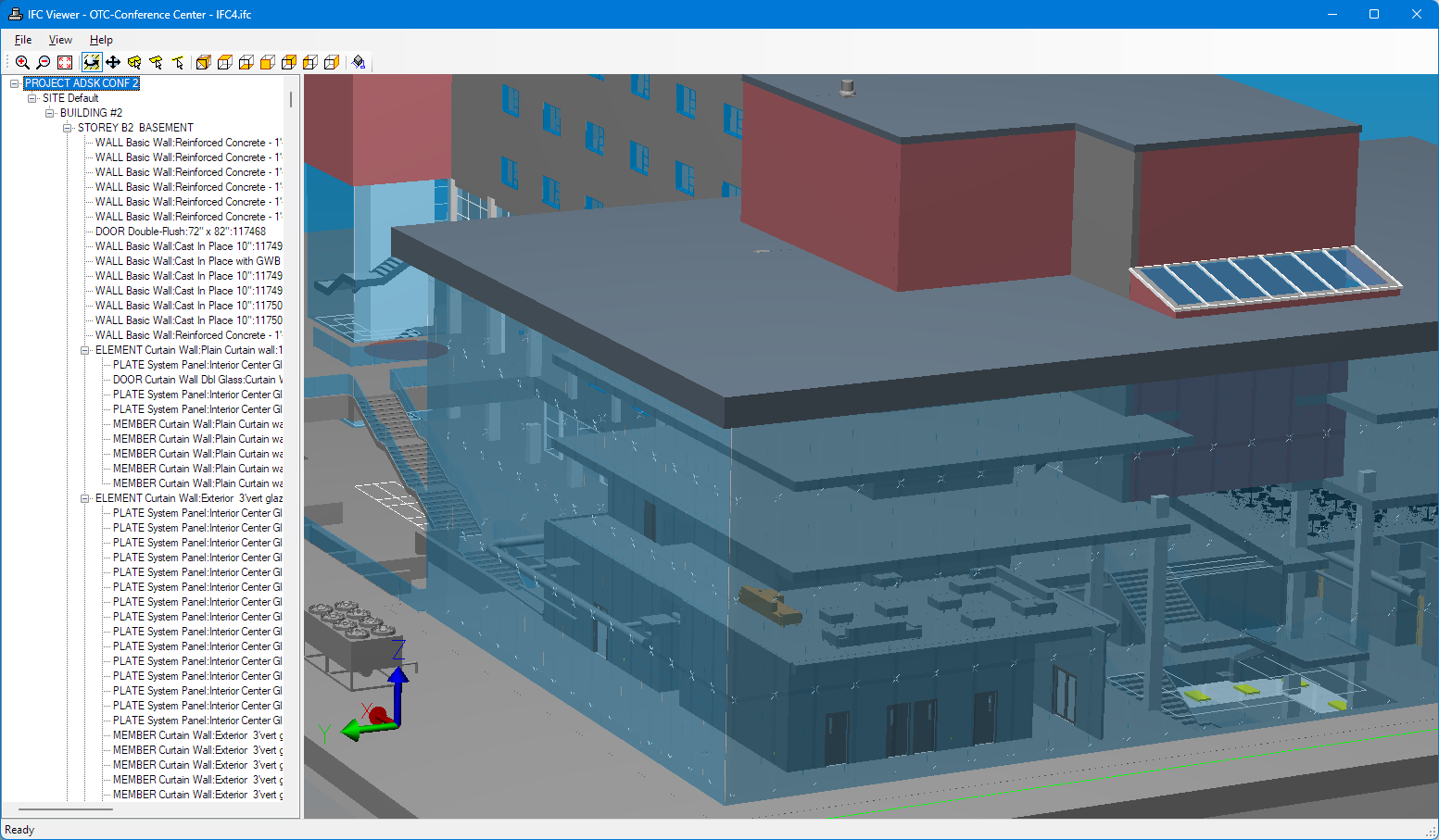
The IFC mesher now breaks extruded and swept solids into faces
based on curve segments in their underlying profiles, and carries
color information through boolean operations. Color and transparency
is also now available for associated material and for type products.
Previously, entire
solid is one face. Now, profile regions, like the fillet, are
separate faces, plus new geometry like the surface curve swept area
solid webbing.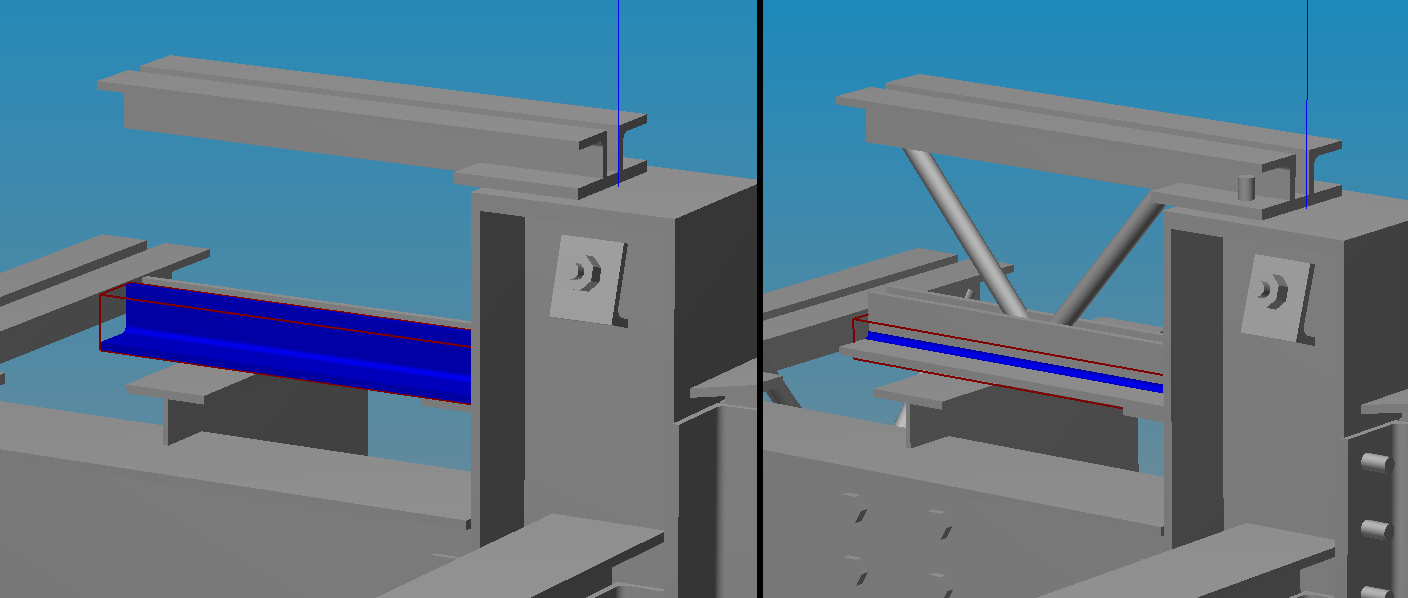
Speed and robustness are improved too, with better boolean computation, healing of some self-intersection on profile curves, and acceleration of FaceBasedSurface and FacettedBreps with many tri or quad faces. This pattern of data was used for tesselated models by some systems before IFC got the tesselated model definitions and can go through a faser path than more complex surfaces.
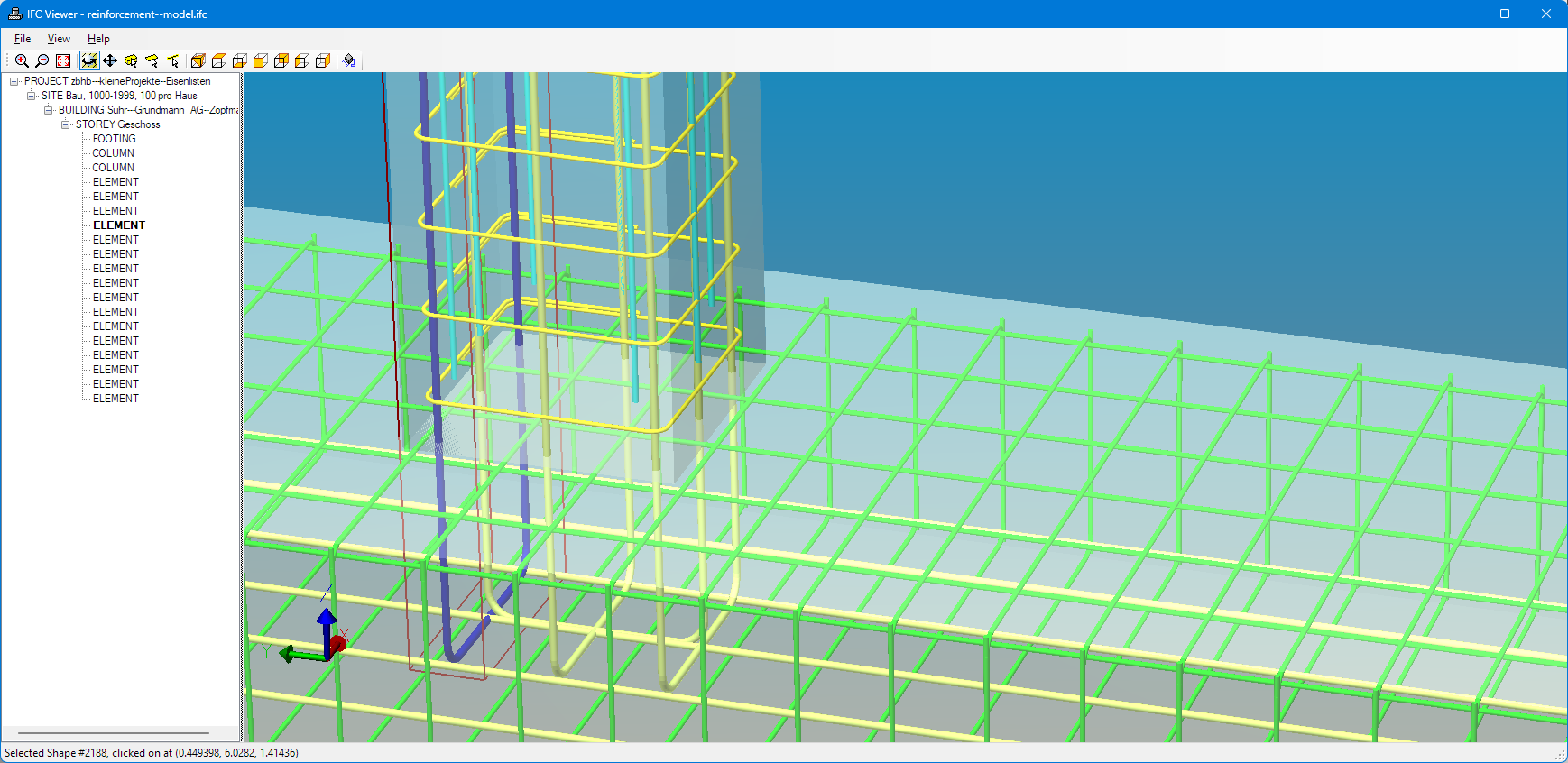
The IFC Helper library now has project, unit, and measure functions for getting context information, recognizing making and making IFC units, and working with IFC measure values. The unit functions recognize all of the mass and SI quantities recently added to the core libraries.
Core Improvements
We continue to improve the performance and robustness of the boolean calculation provided by the library. These are at the heart of STEP-NC material simulation and are used heavily by IFC models, particularly as nested boolean operations ten or twenty levels deep.
The ROSE Math library now has the definitions and unit conversion support to cover the new mass, mass density, area density and many other SI quantities listed under the STEP library improvements. We have also added a number of new functions for geometric calculations like line/plane intersection, polygonal area, and curve linearization. These are mostly in support of the IFC and STEP meshers, but available for more general use. We also made a number of internal improvements for handling meshes with very large numbers of faces.
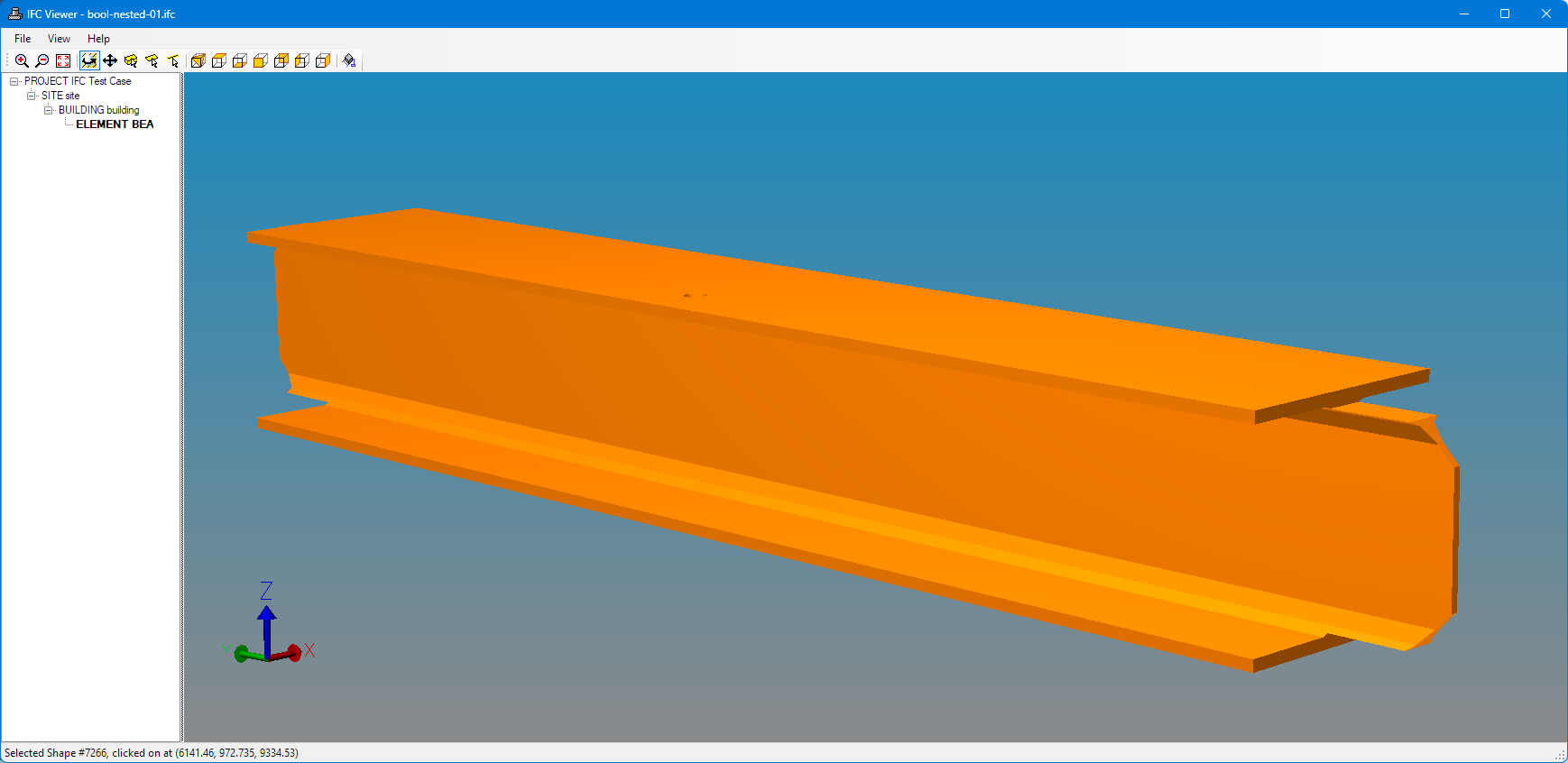
Platforms and Compilers
The STEP Tools® software is available for the operating systems and compiler combinations shown below. This includes support for Visual Studio 2022, Mach-O universal libraries for ARM and Intel on MacOS, and Linux compiler support for all distros currently in LTS back to RHEL7.
On Windows, this will be the last major release with support for the Visual Studio 2017, 2015, 2013, and 2012 compilers. Please contact us if removing these configurations will cause issues with your build environment.
| Platform | Supported Compilers |
|---|---|
| Windows 10/11 32bit | Visual Studio 2022 (VC++ 17), Visual Studio 2019 (VC++ 16), Visual Studio 2017 (VC++ 15), Visual Studio 2015 (VC++ 14), Visual Studio 2013 (VC++ 12), Visual Studio 2012 (VC++ 11), with the /MD option. Library versions for static and DLL linking. |
| Windows 10/11 64bit | Visual Studio 2022 (VC++ 17), Visual Studio 2019 (VC++ 16), Visual Studio 2017 (VC++ 15), Visual Studio 2015 (VC++ 14), Visual Studio 2013 (VC++ 12), Visual Studio 2012 (VC++ 11), with the /MD option. Library versions for static and DLL linking. |
| MacOS 11+, M1/M2 ARM and Intel 64bit | Clang (Xcode 12.0) with Mach-O universal libraries for ARM and Intel. Library versions for plain and position-independent static linking, and dynamic linking. |
| Linux Intel 64bit | GCC 4.8 and newer, which covers all distros currently in LTS back to RHEL7. Library versions for plain and position-independent static linking, and dynamic linking. |
Contact us to arrange other platforms or configurations. See the installation notes for Windows, MacOS, and Linux for details on each platform, library versions, C++ compilers and build flags.
The STEP Tools® libraries use several open source packages.
Versions and Installers
Service Pack One was released on 2024-07-XX, and the installers and versions for the Core, STEP, IFC, and other packages are listed below.
Package Version Installer ------- ------- --------- Core SDK v20.1 stdev_core_20_1_* STEP Stack v20.1 stdev_stpstack_20_1_ IFC Stack v20.1 stdev_ifcstack_20_1_